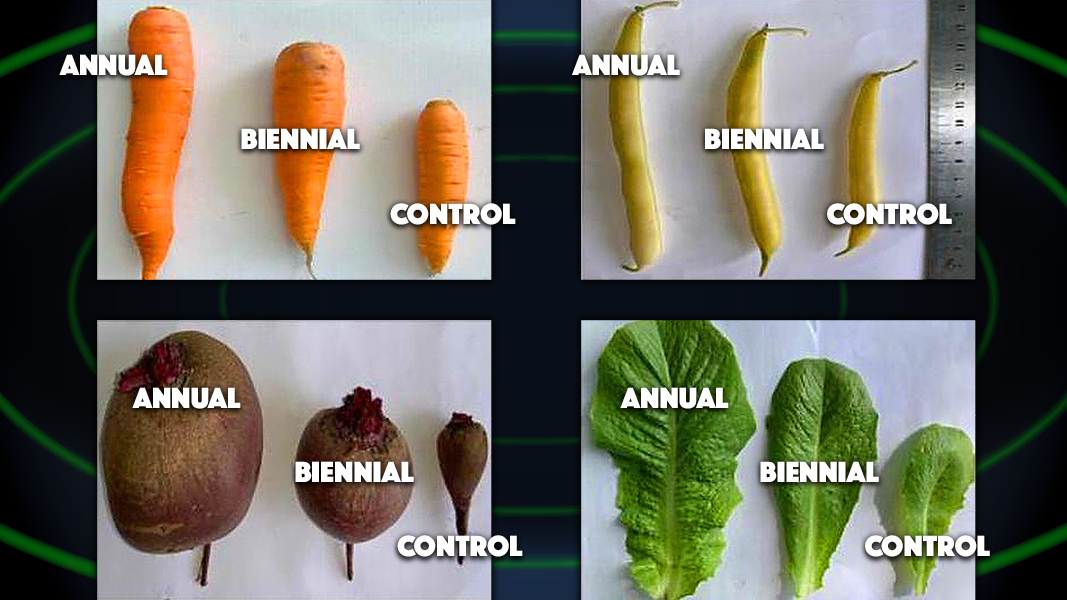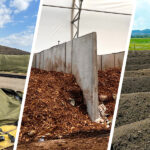Top: Crop comparisons highlight benefits of compost use during research trial conducted by Dalhousie University. Photos courtesy of the Compost Council of Canada
A five-year agricultural research trial conducted in Brandon, Manitoba shows that the addition of compost to food-growing soils produced higher yields with better nutritional values, energized through improved plant metabolism — the process by which plants live and grow. Using compost made from food scraps and garden trimmings from the city’s residential collection program, the study was conducted by Lord Abbey, PhD, of Dalhousie University’s Faculty of Agriculture, supported by Manitoba Conservation & Climate and the Compost Council of Canada. “We grew 4 different vegetable crops — lettuce, beets, carrot, and green beans — applying the city compost at different frequencies, once every year and once every two years with our control being none at all,” explains Dr. Abbey. “Not only were the harvests more productive but the densities of the nutrients were greatly increased in the annual and biennial municipal compost applied soils at the end of year five of the study.”
He adds that going into this research, “we hypothesized that the long-term frequent application of municipal compost will potentially biofortify food plants, which has positive implications to human health. We had the harvests analyzed at Alberta’s Metabolomics Innovation Centre, Canada’s national metabolomics core facility and what we found was truly remarkable. Further studies to elucidate the mechanisms underpinning such biofortification will be required.” An excerpt from the abstract of Dr. Abbey and his coauthors’ paper published in the journal, Food Research International, summarizes some of the findings:
- Typically, soil fertility highly increased with the annual application of the MSW compost followed by the biennial application but declined in the control plot.
- The annually applied MSW compost increased total amino acids in the lettuce, carrot, beets, and green beans by roughly 323%, 109%, 94% and 18% respectively, compared to the control.
- Overall, total phospholipids were enhanced by the biennially applied MSW compost.
- Total organic acids in the lettuce, beets, and green beans were altered by the annual and biennial MSW compost applications by about 35% and 23%; 6% and 6.4%; and 22% and 65%, respectively compared to the control.
- A 2-dimension principal component analysis biplot confirmed positive association between the different frequencies of MSW compost application and soil fertility enhancement of plant metabolites. In conclusion, the annual application of MSW compost enhanced amino acids, phospholipids, acylcarnitines, amines and choline but reduced glucose in the lettuce, beets, carrot, and green beans.
“Dr. Abbey and this Manitoba study showcases the importance of recycling organic residuals,” says Susan Antler, Executive Director of The Compost Council of Canada, which is celebrating its 30th anniversary in 2021. “As his study shows, turning these organic ‘leftovers and remains’ into compost produces a reservoir of essential plant nutrients and biomolecules such as macro- and micro-nutrients, amino acids, carbohydrates, lipids and mineral nutrients, vital for plant metabolism. At a time of global climate change, ever-increasing food and nutrition insecurity and these grave consequences on human health and well-being, it is a waste to throw them away.”













